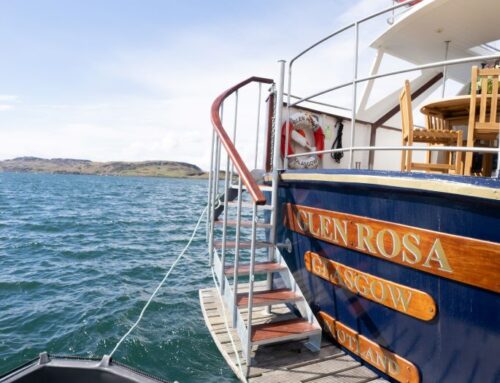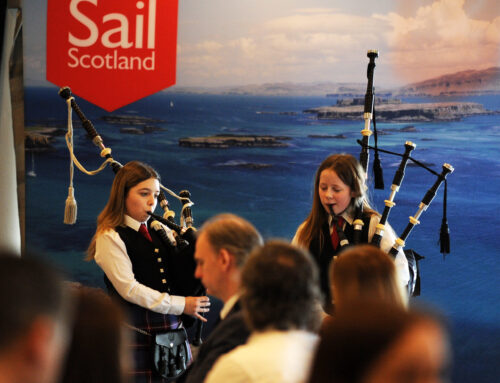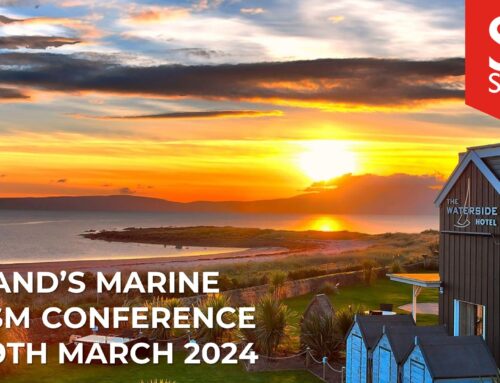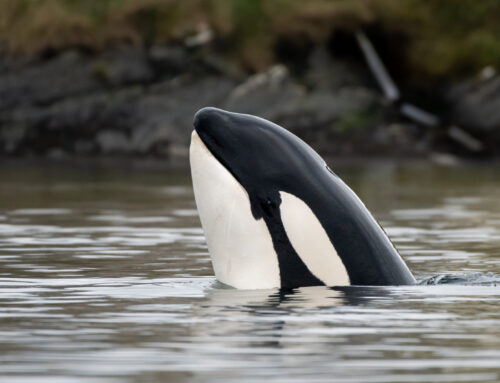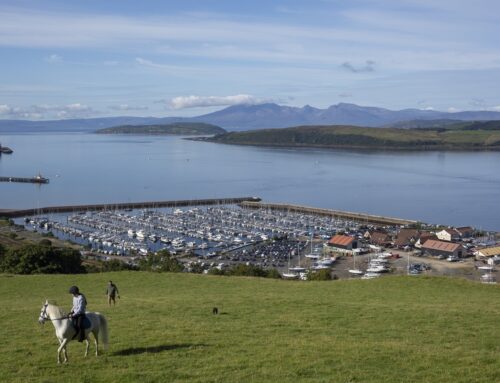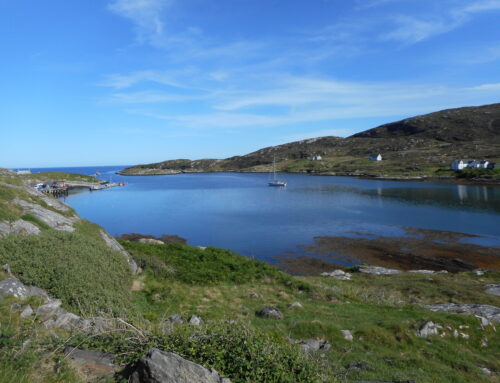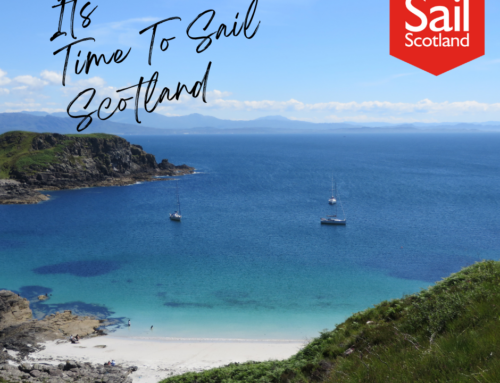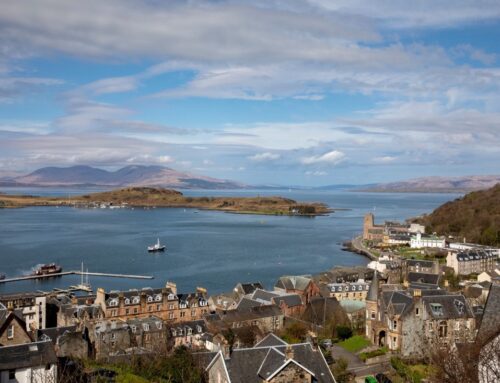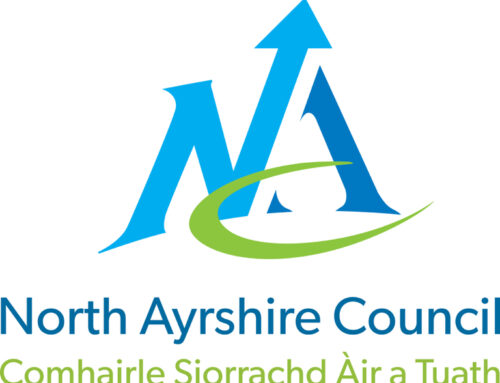Guest Blog by Julie Dubois Marshall of St Hilda Sea Adventures
One of the joys of sailing ex-tall ship St Hilda around the Western Isles of Scotland is the beautiful scenery and the incredible wildlife both above and below the waves.
St Hilda is a wooden charter vessel, built in Scotland in St Monans, Fife, by a family-owned (Miller’s) boatyard specifically for sail training with a crew of 20 which is why, nowadays, she is such a spacious yacht for her six guests, skipper and chef. Throughout the last 10 years of chartering the St Hilda has been a very special holiday for families, groups of friends, couples and single travelers and they have all enjoyed the many and varied onboard activities, from learning how to sail and navigate, wandering along the beautiful seashore and mountain paths, rock pooling, collecting plankton and seeing the spectacular wildlife. There are golden and sea eagles, whales (minkes, and occasional humpbacks and orcas) as well as myriads of seabirds, dolphins, porpoises and basking sharks and ashore and along the coasts are ospreys, corncrakes and otters. From these wild and unpolluted seas we have been able to collect and, with the aid of microscopes, to see, film and photograph Scotland’s beautiful underwater plankton.
Plankton means to “wander or drift” and Scotland’s “ocean drifters” travel to the rhythms of the ocean currents and winds and live and die in an underwater environment that is only now just being understood. Microscopic plankton is made up of bacteria, viruses and plant (Phytoplankton) and animal (Zooplankton) single and multi cells in a complex interdependent mix. Their role is fundamental to survival of the planet as the plankton provides oxygen and mops up carbon dioxide. Their environment could change rapidly, because global warming will affect their habitat and their distribution. For many years aboard St. Hilda we have been collecting and looking at Scottish plankton especially for any plankton species that are found only in the tropics. There is a direct route from the tropical seas by the Gulf Stream and the North Atlantic Current to our cruising grounds on the West Coast of Scotland as well as the Slope Current that travels up from the warmer waters of Spain along the continental shelf.
In 2016 St Hilda’s skipper published a paper on tropical plankton collected from the waters of Belize and the Gulf of Honduras. He used the same methods of towing a fine meshed net over the stern, as do the guests on St Hilda. To date the guests haven’t found any tropical species but it doesn’t mean they are not there. What they have discovered though is the beautiful underwater world of microscopic plankton – a true microcosm of life.
Find out more about St Hilda Sea Adventures






